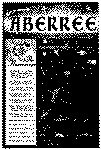Volume 5, Issue 6, page 7
I.
41 PART II
ROBABLY no other factor
so disrupted the initial ,
43 ambitious group activities of Dianetics as
the lag in communications that
followed a wide acceptance of
Hubbard's basic theories. The
spontaneous growth of universal interest led tc hundreds
of club activities across the
land, but within a year most
of them had collapsed of inertia, or fallen apart as members went off on thousands of
wild and variable tangents.
Possibly t h e newspapers
could have helped get information around, but as usual they
chose to print only a series
of derogatory calumnies from
the opposing and self-appointed "experts" who were more
ready to attack Hubbard's
ideas than to try some of them
out, simply because the orthodox approach
had been abandoned for the sake of successful experimentation, and the conclusions were at a radical tangent from popular schools of thought or reaction --
depending on how you look at it.
From some of these sources you could
only judge that word of a possible comfort to the human race was as unwelcome
as if a plague of cobras had been released
upon the pocketbooks of the medical profession. Arguments against self-improvement via Dianetics seemed to be predicated more on " unprofessionalism " -- meaning
not to pay some licensed practitioner of
an orthodox art -- than on logical arguments coming from trial and error.
Members of the so-called "free press"
took their orders like children swallowing Castoria and dutifully proceeded to
produce the desired results in distorted
news reports from coast to coast.
The result for persons seriously interested in Hubbard's theory of the reactive mind and engram bank was that the
only source of continuing data was in material from bulletins, pamphlets, and
magazines which trailed the actual events
by several months at the best.
Many such articles were adverse, and
to be suspect of ulterior motives -- perbaps even "planting" -- but a few of them
were just the opposite, written by erudite
men wit h university degrees and some
prominence in their chosen fields -- capable reporters and observers --
who must have been ultimately
embarrassed by the many irrational offshoots that a screwball element soon was to introduce thruout t h e whole
structure of Dianetics.
One of the best articles on
the subject -- if memory serves
correctly -- was by a Professor
Shulman, published in BETTER
HODS AND GARDENS magazine. A
borderline example in PI C
asked the sensation-seeking
question on the front cover:
"Can Dianetics Tell a Baby's
Real Father?", or some similar
interrogation, of the world at
large. The account inside, however, was considerable more of
a factual report on the idea,
and not bad.
Regardless of purpose or
intent, the time lag was fatal
to many groups around the
country. For example, people in the Intermountain area who might have gone as
much as 800 miles to hear Ron lecture in
San Francisco during the speaking tours
he made in 1950, usually read in the "July"
Auditor's Bulletin, received in late October, that "the man" would make such and
such a lecture in the Bay Area in August.
Also, in some Rocky Mountain cities, a
high pressure, hot-shot promoter of questionable integrity and delusions of grandeur (borderline psychos were drawn to
this like flies to honey), so thoroly insulted the members of the local, hardworking dianetic groups that the end result was to alienate hundreds of persons
who had no other choice than to accept
such a person as a bona fide representstive of Hubbard, and thus Ron (because of
h i s frequently unfortunate choice of
"salesmen") was to be judged himself by
the caliber of such men who had horned
into the act solely motivated by moneyhunger and destructive, wasteful desires.
In spite of the hundreds of such persons who drained the organizations like
leeches, a reliable and steadfast core of
serious men and women pulled together and
helped Hubbard to establish a series of
official "Foundations" from coast to
coast. Depending almost entirely on individual integrity and ability, these
flourished with greater or lesser success
for indefinite periods.
Among the noteworthy
ID. ION -- Dianetics is still a baby,
years wise, ye t in
less than a decade, it
has stirred up a lot
of contention, picked
up many followers, and
at the same time, made
many foes, some of
whom were "stars" in
the early days of the
movement. Why? this
series of articles is
one auditor's opinion
of what happened to
Dianetics, mostly before it became Scientology, but if anyone
wishes to add their
oun views on the subject, they are invited
to do so. All we ask
is: try to keep it as
historical and "factual" as human aberration will permit.
and
remarkable
OCTOBER, 1958 The A B E R R E E 7


